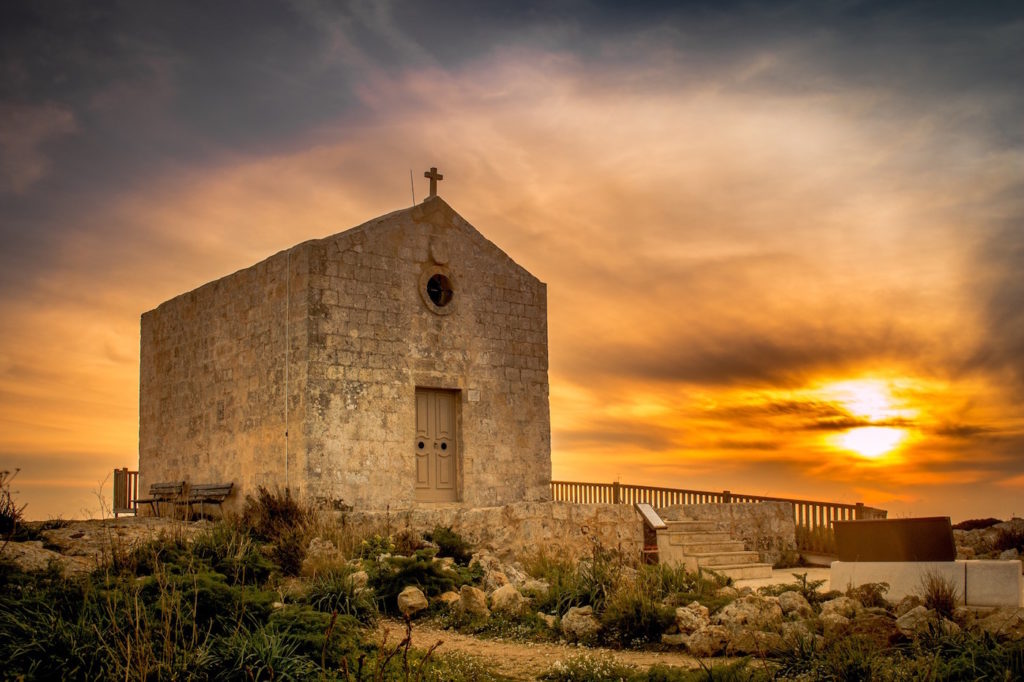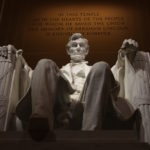This essay is part of our series on the significance of the rise of the “Nones.” See the full collection here.
Roughly one fifth of Americans, and one third of young Americans, are what the Pew Research Center has dubbed “Nones,” people who claim no religious affiliation—and their numbers are growing. Writers on all sides agree that the rise of the Nones signals the decline of religion, but disagreement continues over what it means for the future of America. This week at Public Discourse, our contributing editors will offer analyses of how the Nones will affect the five pillars of a free and virtuous society: the human person, sexuality and family, politics and law, education and culture, and business and economics. In today’s essay, I offer some background on the Nones and on recent shifts in America’s religious landscape. These shifts constitute an erosion not of devout religious communities, but of a broader Christian culture. The loss of that culture will have an impact on principles that developed out of Christian beliefs, two such principles being the dignity of the human person and the right of religious liberty.
Less Religion, or a New Religion?
Some might consider the rise of the Nones to be proof of the “secularization thesis”: that “modernity inevitably produces a decline of religion,” as Peter Berger put it. However, as Berger himself came to see over the course of decades, that thesis is false. Instead of secularism, modernity produces pluralism, “the coexistence in the same society of different worldviews and value systems. . . . The problem with modernity is not that God is dead, as some people hoped and other people feared. [Rather,] there are too many gods, which is a challenge, but a different one.”
Start your day with Public Discourse
Sign up and get our daily essays sent straight to your inbox.If this is the case, then the rise of the Nones should reflect the emergence of a new faith (of a kind) rather than a loss of faith altogether—and the data bear this out. The recent report from the biennial General Social Survey (GSS) at the University of Chicago showed that 23 percent of Americans claim “no religion” as their religious affiliation, a number that has steadily grown since the 1990s. But, as Mark Movsesian outlines, the percentage of Americans who claim a “strong” religious affiliation is at 34 percent, only one percentage point lower than it was in 1975. 48 percent of Americans believe the Bible to be the inspired Word of God, about as many as did in 1984. The percentage of people who say that they pray several times a day is almost 30 percent, slightly higher than it was in 1983. The number of Americans who attend regular religious services has remained constant over decades, though the number who attend every week has dropped from almost 30 percent in the 1970s to 17 percent today.
Movsesian concludes that “the rise of the Nones is not due to a general societal decline in religious fervor, but to a decline in religious affiliation among people whose identification was weak to begin with.” The GSS directly attests to this: the number of Americans with a “somewhat strong” religious affiliation dropped from 12 percent to 4 percent between 2006 and 2018. Studies on young Catholics bear this out, too. As Bishop Robert Barron noted in a recent address to the US Catholic bishops, 50 percent of Catholics thirty years old and younger have left the Church, and one out of six American millennials is a former Catholic. Most of these young people leave out of ambivalence rather than animus, wandering away because they no longer believe the Church’s tenets and have no reason to stay affiliated with it.
The decline of religious affiliation among those with a weak identification marks not only a decline of cultural Christianity, but a new norm for American society, a norm that is replacing a broadly Christian culture. What is the new norm? Certainly not a militant skepticism or atheism. Fourteen years ago, Christian Smith and Melinda Denton coined the term “moralistic therapeutic deism” for the religious beliefs of the next generation, which sees God as “something like a combination Divine Butler and Cosmic Therapist.” Many now describe themselves as “spiritual but not religious,” believing in some such supernatural force but seeing no need for the bonds of religious community and authority.
More recently, scholars such as Adrian Vermeule have noted the religious character that contemporary political liberalism has taken on. Its protests and denunciations have sacramental and liturgical elements. It makes the free exercise of the will its highest good and works to tear down any barriers in its way, social or biological. It now has a liturgical calendar, too. Twelve years ago, when I first moved to New York City, the Pride Parade was only one of many that celebrated one particular slice of the city’s population, like the Irish or Puerto Ricans. Just over a decade later, June now brings Pride cookies to sandwich shops and museum cafés. Uber, Polo, Nordstrom, and other large corporations decorate their stores and websites for the occasion. This has provoked parodies of how corporate Pride has become, a direct analogue to the annual lament over the corporatization of Christmas.
The Christian Roots of Human Dignity and Religious Liberty
If America’s religious norm is changing from Christianity to therapeutic deism and spiritualized progressivism, then we should expect more Americans to question the principles that Christianity articulated, especially when they clash with individual autonomy. No wonder then that today we find many people challenging longstanding protections of human dignity and religious liberty.
As Kyle Harper notes, “none of the classical political regimes, nor any of the classical philosophical schools, regarded human beings as universally free and incomparably worthy creatures. Classical civilization, in short, lacked the concept of human dignity.” Christianity introduced to the ancient world the notion that all human beings were created in the image and likeness of God and were given freedom so that they could follow his law and relate to him. This doctrine transformed the world, but not all at once: only gradually, as it confronted institutions that denied it.
Harper notes three particular transformations. No ancient authority had ever invoked a “free nature” that belonged to all human beings. The world’s first recorded opposition to slavery as an institution comes from a homily on Ecclesiastes by the Christian bishop Gregory of Nyssa. Gregory argues that slave ownership is unjust because it violates that free nature: “Do you condemn man to slavery, whose nature is free and autonomous?” Christians also opposed sexual coercion, which resulted in a fifth-century Byzantine decree against organizing prostitution. “For the first time,” Harper writes, “the bodies of those without any familial or civic claim to sexual honor received the protection of the state, simply by virtue of their human dignity.” Likewise, “no other ancient philosophy offered anything like the Christian command to love the poor.” Indeed, the very idea of “the poor” as a social group―whose poverty was an affront to their dignity―did not exist. Christians created this social category and worked in new ways to relieve the poor’s sufferings.
As radical autonomy replaces a more Christian understanding of freedom in America, it is unlikely that slavery will be revived tout court. But we should not be surprised to find that the will of the strong is being given freer rein over the bodies of the weak. For instance, the contemporary enlightened solution to prostitution is not to prosecute johns, but to oppose any restrictions or stigmas to sex work, lest they violate the autonomy of the small number of prostitutes who choose the profession voluntarily. Then there are the injustices in the surrogacy industry, where the wombs of poorer women are rented by richer couples at the expense of the former group’s health and well-being. Others are frantically trying to keep the law from recognizing the rights and even biology of unborn children.
Like human dignity, the idea of religious liberty was unknown in the ancient world. As Robert Louis Wilken demonstrates in Liberty in the Things of God (recently reviewed in Public Discourse by Steven D. Smith), religious liberty first emerged in Christianity’s conflicts with Roman authorities. The ancient world knew no distinction between politics and religion. Christians who refused to take part in public religious ceremonies were prosecuted as enemies of the state. The second-century author Tertullian was the first figure in the history of Western civilization to use the phrase “freedom of religion.” He argued that religion was a matter of inner conviction and could not be compelled:
It is only just and a privilege inherent in human nature that every person should be able to worship according to his own convictions; the religious practice of one person neither harms nor helps another. It is not part of religion to coerce religious practice, for it is by choice and not coercion that we should be led to religion.
Christians also argued for the rights of religious communities to practice their faith publicly, and for individuals to live according to the dictates of their consciences. As America’s Christian culture wanes, we should not be surprised to see a distinction emerge between the freedom to worship and the free exercise of religion, between the freedom to believe and practice religion privately and the freedom to live out one’s faith in the public square, even if it should offend or impinge on the desires of others. If God is not the ultimate source of morality, and if conscience means doing whatever you want, then the duty to follow one’s conscience is less likely to be taken seriously as a reason for action that must be respected. Religion is also less likely to be privileged as a source of moral authority. If religious beliefs are like any other beliefs, and not about giving due obedience to the creator of the universe, why should your religion be allowed to hinder my autonomy?
Charity, Civility, and Clarity
As Mark Movsesian notes, the rise of the Nones reflects a further erosion of the common ground in our public discourse. The coming years will witness more heated debates as the new “religious” culture clashes with the Christian consensus that was. We will also see a decline in the public’s comprehension of principles that Christianity helped to articulate, even though those principles are not exclusive to Christian theology. Charity and civility will be necessary for navigating these waters. So will forthright and clear defenses of fundamental freedoms with vigorous legal and philosophical arguments.















